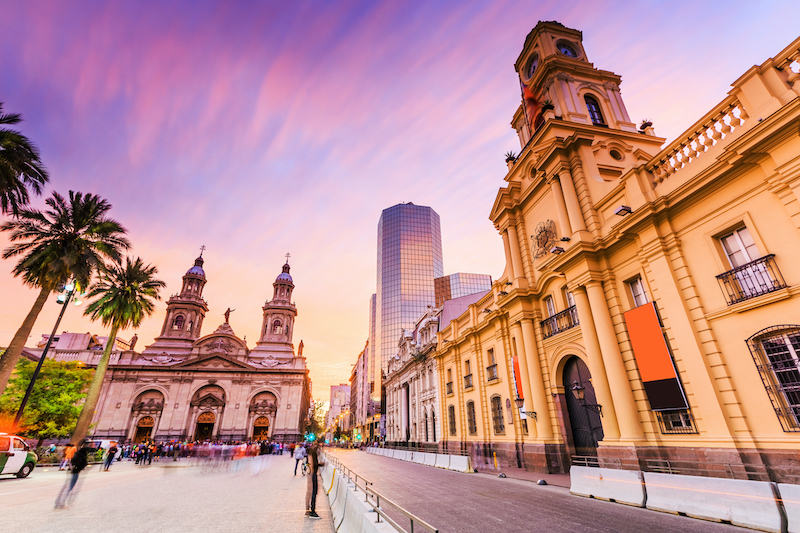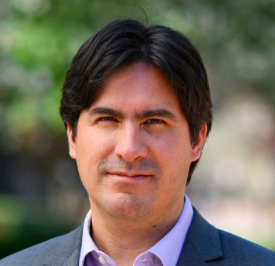
Despite a robust regulatory scheme, Chilean officials struggle to follow experts and respond to COVID-19 effectively.
Chile reported its first COVID-19 case in early March—the end of the Southern hemisphere’s summer—as children returned to school, their parents returned to work, and hundreds of thousands prepared to resume the massive political demonstrations that erupted in October 2019. The political context surrounding the Chilean government’s COVID-19 response—where lack of government trust has become pervasive—is crucial for understanding the government’s failure to address and contain the virus. As of late May, Chile has more cases than China—and the numbers are still going up.
A month before the coronavirus arrived in the country, the Chilean government issued an executive order declaring a national health emergency, following the World Health Organization’s designation of the outbreak as “a public health emergency of international concern.” At this time, a constitutional referendum on replacing the 1980 Constitution—enacted during the Pinochet dictatorship—was fast approaching. The government correctly persuaded the National Congress of Chile to take action and postpone the referendum until the end of October 2020.
In response to the COVID-19 outbreak, the government declared a three-month “state of exception.” This measure is important for at least two reasons: first and foremost, it allows for the restriction of fundamental rights, specifically the freedoms of movement and assembly, and gives the government power to adopt drastic measures, such as imposing curfews and requisitions. Second, the government declared a state of exception only five months earlier in response to the protests that erupted in Santiago over rising costs of living and dissatisfaction with the government’s reform efforts and policies. Then, President Sebastián Piñera reportedly said that the country was “at war with a powerful, relentless enemy that respects nothing or anyone.” His statement became infamous as Chileans witnessed tanks patrolling the streets of Santiago, and as police and military personnel carried out serious human rights violations. Declaring a new state of exception in March—although this time for very different reasons—was not a light decision.
Pursuant to the powers granted under the most recent state of exception amid COVID-19, military commanders immediately imposed a curfew and announced that they would randomly check individuals’ identification, a measure that raised concerns as it was not clearly related to health. Perplexity increased when residents of Santiago woke up to find that the first measure the government adopted—on the first night of the curfew—was to wash down Santiago’s main square, the epicenter of the 2019 protests. Two weeks later, while people in downtown Santiago were ordered to stay at home, President Piñera made a random stop at the square to pose for a photo, sparking additional outrage.
In an already tense political climate, the Chilean government has continued to draw criticism due to its erratic response to COVID-19.
Health regulations in Chile delegate significant power to administrative agencies. Article 36 of the Health Code enables the President to grant health authorities “extraordinary powers to prevent the spread of a disease or face an emergency.” The Health Code does not specify which powers the President can delegate—a legislative omission that gives health authorities tremendous leeway. The Code does, however, give health authorities the power to inspect and search “any location, building, house, business and work place, whether public or private” and to order police to enforce health authorities’ orders. Authorities may also impose fines against those who breach orders and regulations and may even order an inspected place or facility to close.
The government further augmented health authorities’ power after taking notice of the health crisis in February. As noted above, just days after the World Health Organization declared the outbreak “of international concern,” the Piñera Administration issued an executive order to establish the regulatory framework for the pandemic. The order declared a one-year health emergency and gave health officials expansive powers to adopt measures that include imposing stay-at-home orders and curfews, establishing sanitary controls, regulating the purchase and distribution of goods, setting price caps on drugs and medicines, and provisionally authorizing the set-up of tent hospitals.
As the economic crisis began to unfold, the government’s labor department—Dirección del Trabajo—declared that employers could be exempted from paying employees’ salaries based on a force majeure theory. The statement sent shockwaves through the country and forced Congress to enact legislation giving employers the chance to opt-in to the temporary suspension of employment contracts. Although workers are not laid-off, once their contracts are suspended, workers qualify for unemployment benefits. Large companies and businesses, both domestic and international, have already resorted to suspending employees under this law. In addition, eight weeks into the crisis, Congress approved a three-month emergency payment to support independent workers, who make up about 25 percent of the country’s population. For the most vulnerable families, the government issued a one-time $58 cash payment.
One of the most salient problems with the Chilean government’s handling of the crisis is the salutary tone that health authorities and the President himself embraced for far too long. At the outset of the crisis, the government announced that the country was “very much prepared to handle 430,000 cases,” and that everyone would be able to get a COVID-19 test. In reality, only those who could afford it would get tested—and private health providers charged as much as $70 until the government decided to fix the price of COVID-19 tests at $30. Most significantly, three months into the crisis and with more than 87,000 reported cases, the health system is collapsing. Like in Italy and Spain, Chilean doctors have to choose which patient will use a vacated bed. As President Piñera had to acknowledge, “Chile was not prepared.”
Government officials have clashed with medical experts, scientists, and, of course, political opponents, fostering a political climate not favorable for a crisis of this magnitude. Regulatory measures have thus been implemented without public trust. Let us look at some examples.
The Piñera Administration’s stand-off with scientists and doctors, including Izkia Siches, the President of Chile’s medical union, Colegio Médico, has been particularly problematic. Siches, a young doctor who has gained both national and international notoriety as a compelling and respected spokesperson, repeatedly demanded a total lockdown in Santiago. The Minister of Health, Jaime Mañalich, however, defended the government’s “dynamic quarantines,” in which residents in one area were ordered to stay at home while those in neighboring districts could freely circulate. In a dense, urban landscape, however, it is next to impossible to stop transmission. Siches and other experts raised concerns about the government’s strategy, but Mañalich dismissed these criticisms, reportedly noting that the international community had grown tired of congratulating Chilean health authorities.
At the same time, government officials, including President Piñera—who by then was calling the virus “a powerful, cruel enemy that respects no one”—started talking about “gradually and safely” reopening the economy under a “new normalcy.” The Minister of Education, Raúl Figueroa, discussed children returning to schools. Health authorities told citizens that it was probably safe to get together for coffee. The Minister of Economy, Lucas Palacios, issued a protocol for the reopening of malls and businesses. In late April, President Piñera said, “Given that today we have roughly 5,800 active cases, anyone who needs health care, hospitalization, an intensive care bed, mechanical respirator, is going to get it. And none of the great powers of the world can say that.” These statements were confusing to say the least, as the President himself then acknowledged that the peak of the outbreak was expected for late April or early May. As of late May, there are more than 87,000 reported COVID-19 cases in Chile—and the peak is yet to be reached.
A national poll indicated that 69 percent of people rejected the government’s call for a “new normalcy.” “Flexible lockdowns” ultimately failed. Tensions among experts and health authorities peaked when scientists from the Millennium Institute for Foundational Research, a prestigious academic center, pulled out of the Ministry of Health’s COVID-19 advisory committee in protest against the government’s persistent failure to provide full access to relevant data. Siches later reiterated the complaint about the Ministry of Health’s failure to share information, asserting that government officials were ignorant of the reality in Chile.
Trust in government officials is critical for the effective implementation of regulation. In countries where authorities include scientific expertise in decision-making processes, there are “high levels of trust and support for the government’s actions.” Good leaders seek—and rely on—scientific advice. That is why quarreling with the medical societies is probably not a good idea. In fact, seven out of ten Chileans do not trust the information relayed by the government. Thus, when Piñera proudly revealed that the President of the United States “expressed congratulatory words” for Chile’s handling of the crisis, people were perplexed: being congratulated by the country with more COVID-19 cases than any other country in the world was hardly good news.
Chile is still preparing for the worst. Cases are spiking, and the government is struggling to expand the availability of intensive care beds, even ordering private clinics to convert their units, subject to both administrative and criminal sanctions for noncompliance. COVID-19 patients must wait up to twelve hours in ambulances outside of Santiago hospitals due to the unavailability of beds; hospitals are ordering refrigerated trucks to receive the remains of COVID-19 victims; and “patients are…dying because there are no ventilators.” Health facilities are expected to collapse despite the immense regulatory power at the government’s disposal—and despite the President asserting when the first case was reported that Chile’s preparedness was a model for the world.
This essay is part of an ongoing series, entitled Comparing Nations’ Responses to COVID-19.




